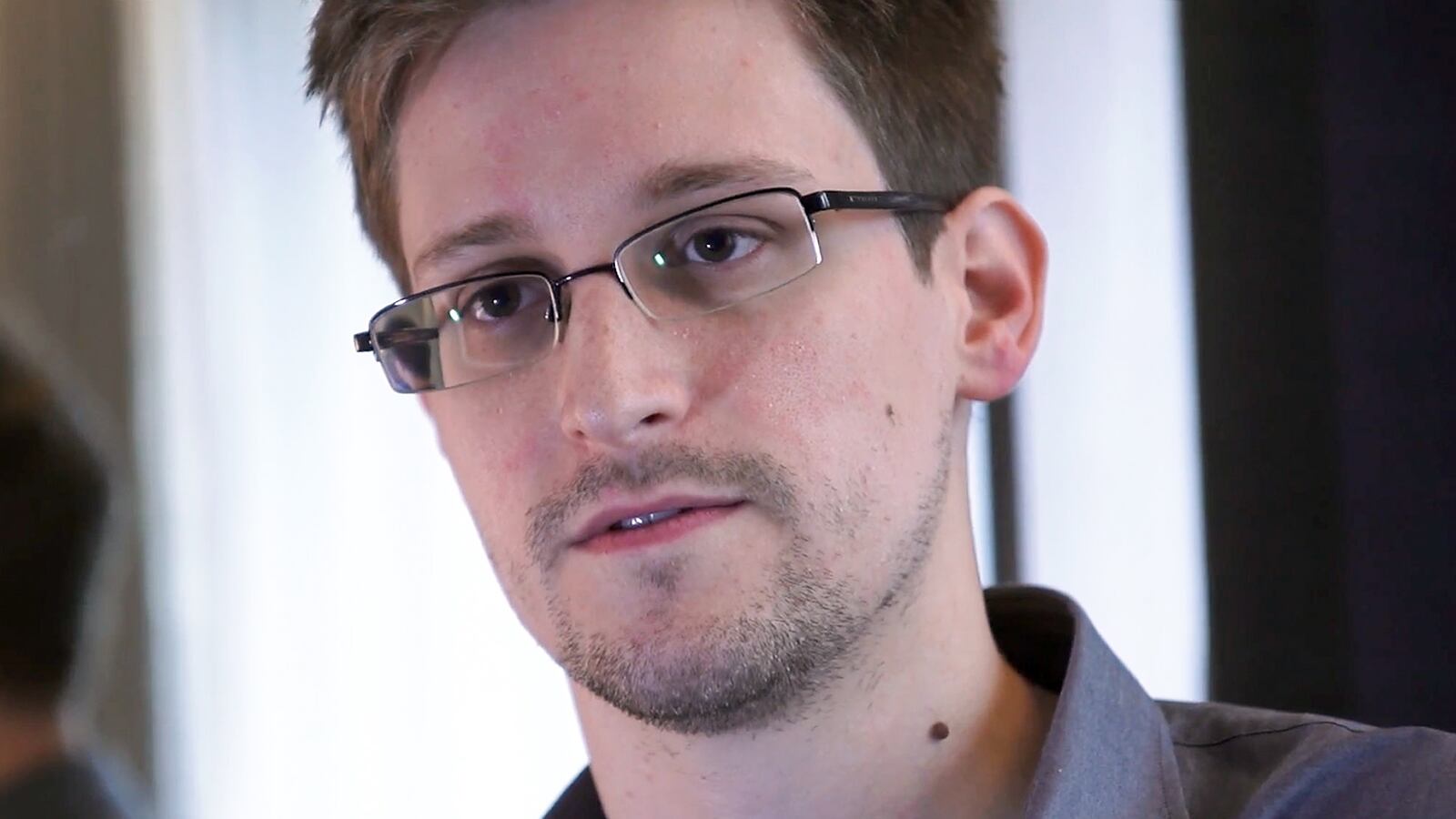NSA leaker Edward Snowden addressed the public live on The Guardian’s website Monday, answering questions from journalists at the paper and elsewhere, and from others on the Web and Twitter, on everything from the press coverage about his girlfriend to whetherhe’s a spy for China (“no.”) Here’s The Daily Beast’s speed read of his Q&A:

Q: Why did you just not fly direct to Iceland if that is your preferred country for asylum?
A: “Leaving the U.S. was an incredible risk, as NSA employees must declare their foreign travel 30 days in advance and are monitored. There was a distinct possibility I would be interdicted en route, so I had to travel with no advance booking to a country with the cultural and legal framework to allow me to work without being immediately detained. Hong Kong provided that. Iceland could be pushed harder, quicker, before the public could have a chance to make their feelings known, and I would not put that past the current U.S. administration.”
Q: Did you lie about your salary? What is the issue there? Why did you tell Glenn Greenwald that your salary was $200,000 a year, when it was only $122,000 (according to the firm that fired you)?
A: “I was debriefed by Glenn and his peers over a number of days, and not all of those conversations were recorded. The statement I made about earnings was that $200,000 was my ‘career high’ salary. I had to take pay cuts in the course of pursuing specific work. Booz was not the most I've been paid.”
Q: Why did you wait to release the documents if you said you wanted to tell the world about the NSA programs since before Obama became president?
A: “Obama's campaign promises and election gave me faith that he would lead us toward fixing the problems he outlined in his quest for votes. Many Americans felt similarly. Unfortunately, shortly after assuming power, he closed the door on investigating systemic violations of law, deepened and expanded several abusive programs, and refused to spend the political capital to end the kind of human rights violations like we see in Guantánamo, where men still sit without charge.”
Q: What are your thoughts on Google's and Facebook's denials? Do you think that they're honestly in the dark about Prism, or do you think they're compelled to lie?
A: “Their denials went through several revisions as it become more and more clear they were misleading and included identical, specific language across companies. As a result of these disclosures and the clout of these companies, we're finally beginning to see more transparency and better details about these programs for the first time since their inception.”
Q: Edward, there is rampant speculation, outpacing facts, that you have or will provide classified U.S. information to the Chinese or other governments in exchange for asylum. Have/will you?
A: “This is a predictable smear that I anticipated before going public, as the U.S. media has a knee-jerk ‘Red China!’ reaction to anything involving H.K. or the P.R.C. and is intended to distract from the issue of U.S. government misconduct. Ask yourself: if I were a Chinese spy, why wouldn't I have flown directly into Beijing? I could be living in a palace, petting a phoenix, by now.”
Q: U.S. officials say terrorists [are] already altering TTPs because of your leaks and calling you a traitor. Respond?
A: “U.S. officials say this every time there's a public discussion that could limit their authority. U.S. officials also provide misleading or directly false assertions about the value of these programs, as they did just recently with the Zazi case, which court documents clearly show was not unveiled by Prism.
Journalists should ask a specific question: since these programs began operation shortly after September 11th, how many terrorist attacks were prevented solely by information derived from this suspicionless surveillance that could not be gained via any other source? Then ask how many individual communications were ingested to acheive that and ask yourself if it was worth it. Bathtub falls and police officers kill more Americans than terrorism, yet we've been asked to sacrifice our most sacred rights for fear of falling victim to it.
Further, it's important to bear in mind I'm being called a traitor by men like former vice president Dick Cheney. This is a man who gave us the warrantless wiretapping scheme as a kind of atrocity warmup on the way to deceitfully engineering a conflict that has killed over 4,400 and maimed nearly 32,000 Americans, as well as leaving over 100,000 Iraqis dead. Being called a traitor by Dick Cheney is the highest honor you can give an American, and the more panicked talk we hear from people like him, Feinstein, and King, the better off we all are. If they had taught a class on how to be the kind of citizen Dick Cheney worries about, I would have finished high school.”
Q: Regarding whether you have secretly given classified information to the Chinese government, some are saying you didn't answer clearly. Can you give a flat no?
A: “No. I have had no contact with the Chinese government. Just like with The Guardian and The Washington Post, I only work with journalists.”
Q: So far are things going the way you thought they would regarding a public debate?
A: “Initially I was very encouraged. Unfortunately, the mainstream media now seems far more interested in what I said when I was 17 or what my girlfriend looks like rather than, say, the largest program of suspicionless surveillance in human history.”




